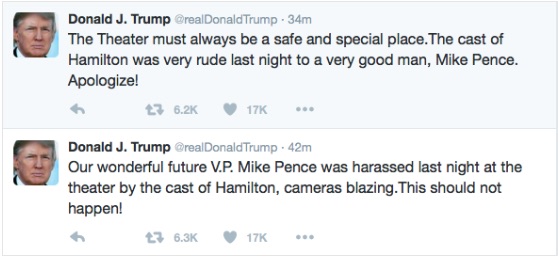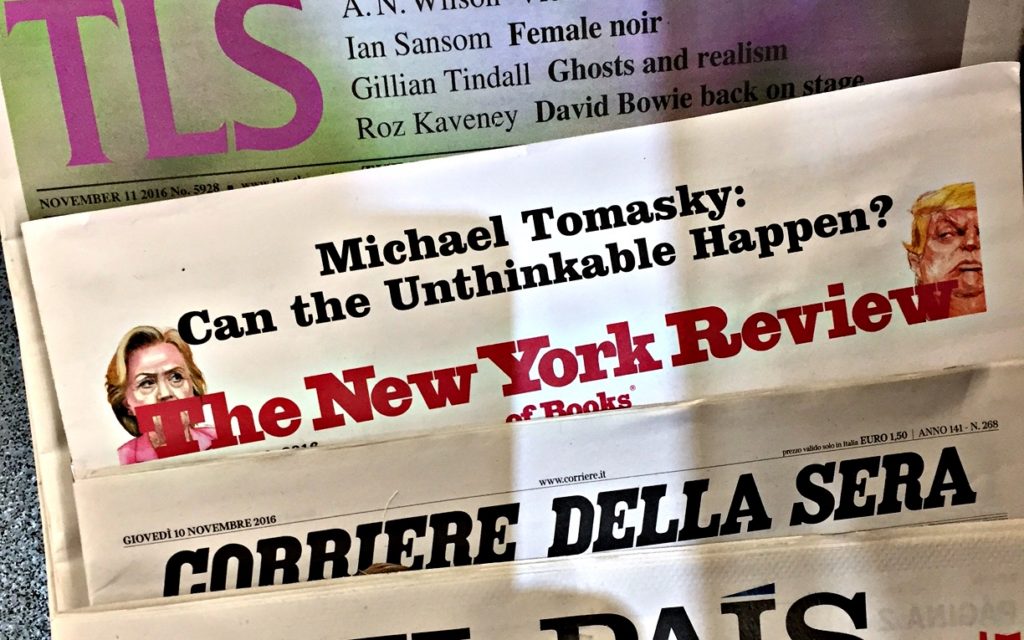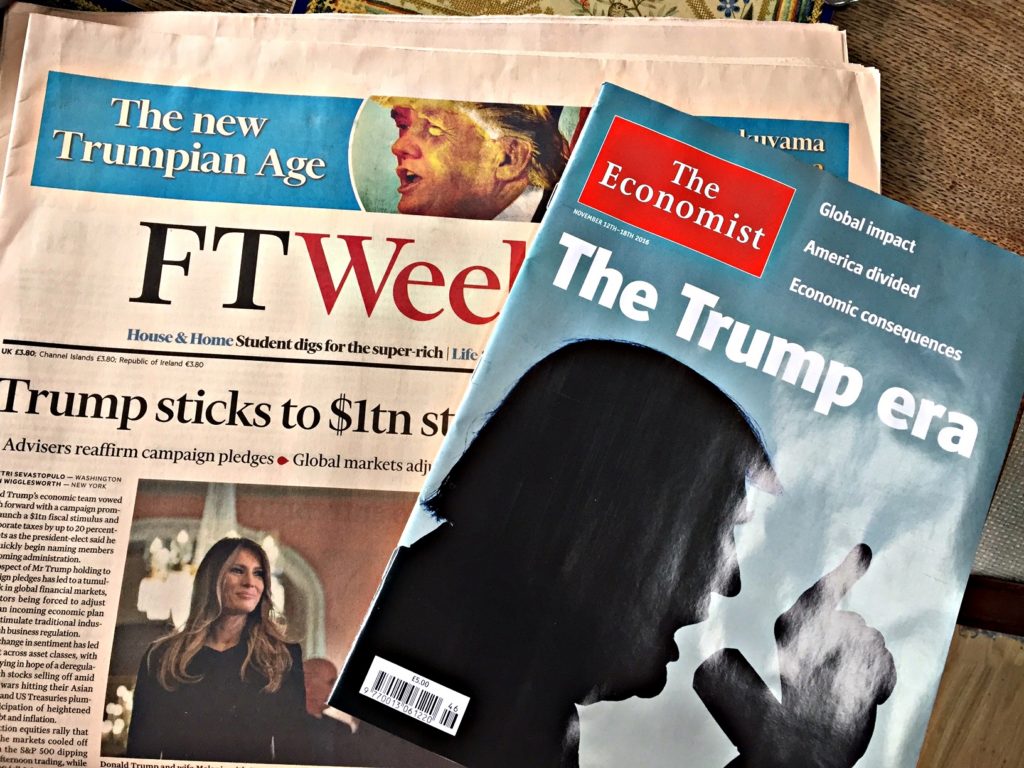Way back in July, Dave Winer wrote an astute blog post that was a model of wisdom and common sense in relation to Trump. In it he pointed out that Trump is what we Internet folks call a troll. And we know how to deal with trolls:
The simple fix
It’s so important a lesson, learned so many times by so many people, through so much pain, that it has been codified into a mantra, so we never forget.
- Don’t feed the troll.
- Don’t feed the troll.
- Don’t feed the troll.
- Don’t feed the troll.
- Don’t feed the troll.
Etc. Yet we keep feeding the troll.
Why?
Why indeed? Last night, the cast of the Broadway musical Hamilton gave Vice President-elect Pence a bit of a lecture. Right on cue, Trump then tweeted:
“The Theater must always be a safe and special place. The cast of Hamilton was very rude last night to a very good man, Mike Pence. Apologize!”
You can imagine the result. Liberal apoplexy on social media. Which leads the inimitable Jack Shafer to write:
Meanwhile, in the villainous golden lair he maintains in Trump Tower, Baby Donald laughed his best Dr. Evil laugh. Got ‘em again, he thought. Yesterday’s settlement of the Trump University lawsuit is the real news, but my Twitter incitement will dominate all else for at least 12 hours as people tweet, “How could he?”, “Oh, now he’s for safe spaces?” and “Don’t tell artists what to say or do!”
Spot on. And Trump’s opponents fell for it hook, line and sinker. As Shafer notes,
Have none of them been paying attention to Trump’s Twitter strategy for the past 17 months? For anybody who has read a half-dozen of Trump’s tweets, the pattern is obvious. He compiles these tweets precisely in order to elicit strident protest. It doesn’t matter to Trump that the cast of Hamilton was polite and respectful to Pence. It doesn’t matter that being rude to office holders is an inalienable right—hell, a responsibility!—of all Americans. To Trump’s followers the content of any one of his rebukes matters less than whom it’s directed at — New York liberals and their fellow travelers in this instance.
What’s been truly amazing about Trump’s Twitter strategy is how spectacularly successful it’s been. All through the campaign, while the rest of the world was asleep he unfailingly composed a tweet that ensured that he would lead the following morning’s news. And all that people could say was that a person who tweeted in the middle of the night must be off his head. Au contraire. Trump used Twitter as a way of keeping mainstream TV news on the hook.
And he’s still doing it.
So back to Dave Winer’s advice: stop feeding the troll. Let him tweet into the void. And focus instead on his plan to install his family in the Presidential Palace that we used to call the White House and the diehard reactionaries he’s installing in charge of the national security state.



